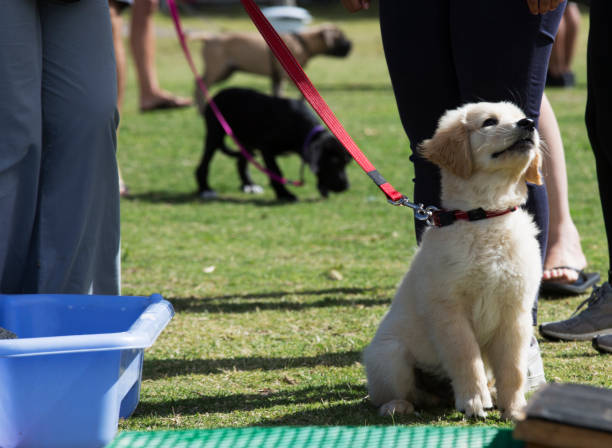Association Between Puppy Classes and Adult Behavior of the Dog

This study was designed to assess the effect of puppies and juvenile dogs’ attendance at puppy classes on the behavior of the dogs at their adult age. For this purpose, 80 dogs (32 of which had attended puppy classes and the other 48 had not) were evaluated using the Canine Behavioral Assessment and Research Questionnaire that was filled out by owners 1 year after the completion of the puppy training. Dogs that attended classes were categorized as puppies (≤3 months) (n = 15) or juveniles (>3 months) (n = 17). Ordinal regression models were used to estimate the influence of puppy classes on the different behavioral traits assessed by the Canine Behavioral Assessment and Research Questionnaire. The results indicated that both puppies and juveniles that have attended classes had more favorable scores for family-dog aggression, trainability, nonsocial fear, and touch sensitivity. The study showed that attending puppy class may be important for social exposure with other puppies and people which could have an association with the dog’s long-term behavior.
González-Martínez, A., Martínez, M.F., Rosado, B., Luño, I., Santamarina, G., Suárez, M.L., Camino, F., de la Cruz, L.F., and Diéguez, F.J. (2019). Association between puppy classes and adult behavior of the dog. Journal of Veterinary Behavior, 32, 36-41.
Photo: iStock.com/brazzo
View ResourceTopic(s): Pet Families, Socialization